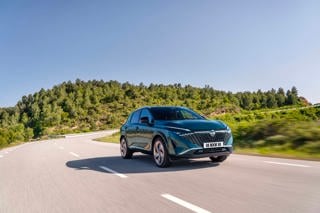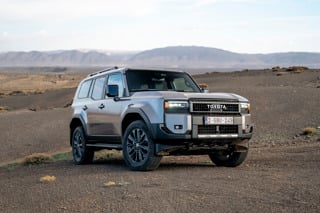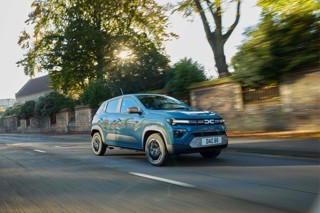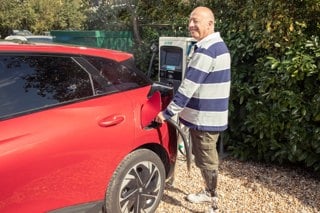While the past few months have been the most challenging the industry has seen, the Government’s current advice to only travel by private car or active travel (cycling and walking) puts dealerships in a good position for recovery.
Finance will be the key to get the country moving again, particularly for those across the country under financial pressure due to furlough schemes or losing out on work because of the lockdown.
Coronavirus support
Many manufacturers, such as Ford and Volkswagen, stepped in to offer payment freezes on finance deals even before the Financial Conduct Authority (FCA) set out its recommendations at the start of April.
The FCA has now asked finance providers to offer a temporary three-month payment freeze to give consumers some breathing space to those who’ve suffered unexpected temporary financial stress since Covid-19 forced the UK’s lockdown.
Funding for EVs
While shared mobility and public transport are taking a back seat right now, the increased popularity of car ownership could set air quality targets back if more work isn’t done to make electric vehicles (EVs) more attractive and affordable to the mass market.
The good news is that there are already some well priced EVs available in Q2 like the Seat Mii Electric and Honda e, both for less than £300 a month.
AM compiles quarterly data of manufacturers’ representative examples and Q2 shows the average monthly payment price across 233 offers was £353.
There are nine plug-in models based on the latest data under the £353 a month mark and four of them are available with a customer deposit of less than £2,000.
Karl Werner, MotoNovo Finance deputy chief executive, said: “Alternatively fuelled vehicles (AFVs) overall are an opportunity for finance quite definitely, not least because this is the type of car that will dominate the new car landscape over the coming years.
“Certainly, there are new options such as battery financing on the horizon and we are looking into this at the moment.”
Werner said that even with all that’s happening with the pandemic, there needs to be any extra financial stimulus in the form of special rates or longer term contracts to help boost the EV market specifically.
He said: “It will happen organically, especially as the charging infrastructure evolves and it is in this re-charging that there may be opportunities to link a finance angle.”
However, it’s not all about new car manufacturer finance support for EVs.
Startline Motor Finance surveyed 57 dealers at the end of last year and 31.6%, the largest percentage, said EVs will have an impact on how finance is provided to those vehicles when they reach the used car market.
A further 35.7% said there have been challenges with finding lenders for used EVs, or the choice is currently limited.
This is something that will need to change for EVs to really take off this year and into the future.
A spokesperson for Startline said: “The vast majority of dealers now view EV as an inevitability, although there is clearly some concern over their impact.
“Much of this revolves around the financing of used EVs, although it is clear that there appears little appetite for new finance products or approaches to resolve this issue.
“Dealers are probably hoping to integrate them into a pretty standard existing sales model – something which may simply not prove to be possible.”
Flat rate APRs on used cars
Some dealers are looking at offering flat rate APR (annual percentage rate) on used cars as a way of kickstarting the market as customers emerge from lockdown over the coming months.
Flat rate APR has long been a weapon used by car manufacturers in the new market, but Imperial Cars has already been trialling the idea at its centres across the south west.
Neil Smith, Imperial Cars operations director, said: “We ran a trial last year where we looked at fixing the APR rate at different levels to see what impact they had on penetration and volumes.”
After originally fixing the finance at 11.9%, which dropped penetration rates from 40% to 33%, Imperial ran finance at 9.9% for 10 weeks.
Penetration increased, but to get it to the 60% needed to remain viable, Smith settled on using a version of the company’s rate for risk model.
This model isn’t necessarily new, as the APR rate for finance has always been set based on a consumer’s creditworthiness, but Imperial now offers a 9.9% fixed rate and those customers with lower credit ratings will still likely be offered finance, but at a higher rate from the group’s panel of lenders.
Smith said: “There’s an element of this where we’re looking at what the lender can do based on the credit rating of each individual.
“The lender needs to cover its risk.
"What we’ve tried to do is narrow that rate corridor down as much as possible.”
Werner believes there are other options beyond fixed rates in used car financing.
He said: “We expect to see the use of risk-based pricing becoming more prominent.
“A move to such an approach would be fairer to borrowers and enable dealer’s finance to compete with other lending forms to increase finance penetration.”
Werner said that from an income perspective, dealers could see finance revenues increase from such a model.
He added: “This is what we have seen in our work to develop this option for a large number of dealers who have piloted this approach for the past few months.”
PCP vs PCH and the future
Werner believes Covid-19 could take the wind out of the sales of personal contract hire (PCH) and there could be some closer scrutiny of the product from the FCA in the future.
He said: “The PCH product carries some very different regulatory requirements to PCP. I wonder if this may mean the product comes under closer regulatory scrutiny in future to ensure customers are treated fairly.
"The challenges of providing forbearance measures to consumers with leasing products may have crystallised the need to make changes.
“In addition, in the immediate future, there may be some residual value setting challenges both from Covid-19 and the switch to AFVs, which will accelerate with new requirements.”
Tashfin Osmani, senior analyst at Automotive Services International (ASI), a company which analyses and researches car manufacturer finance incentives, said PCH is set to continue as a good potential consumer hunting ground from car manufacturers as the market starts to wake up later this summer.
Osmani said: “Ageing stock cars being filtered into the market on attractive monthly payments will be an appealing route for brands.
“It minimises the hit on brand perception with obvious ‘fat’ finance deposit allowance (FDA) discounts.
“However, there could still be a potential risk to PCH if there is a second wave pandemic, as this could put people off lease agreements, with their reduced contract flexibility.”
So far, Osmani said only Vauxhall stands out as putting a greater emphasis on PCH in Q2 2020, with exclusive offers online through credit broker Jet Vehicle Finance.
Meanwhile, Smith believes PCPs that are already out on contract could put lenders in store for some pain dependent on whether vehicles drop in value more than predicted.
For now, residual value specialist Cap HPI has said it is not making overall market adjustments while the market is on pause.
On an optimistic note, Derren Martin, head of valuations UK at Cap HPI, said the likelihood of some pent-up demand, and a shortage of new cars when the car industry does return to anywhere close to normality, could well be positive for used car prices.
This article was first published in AM magazine on May 22





















Login to comment
Comments
No comments have been made yet.